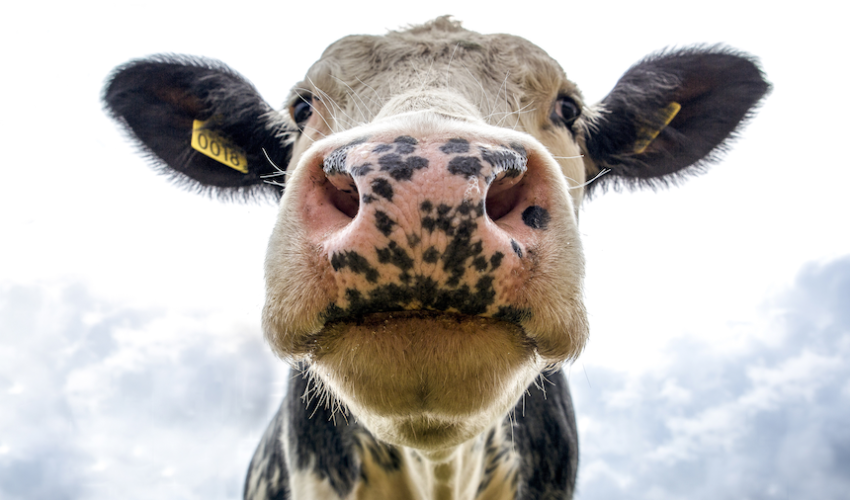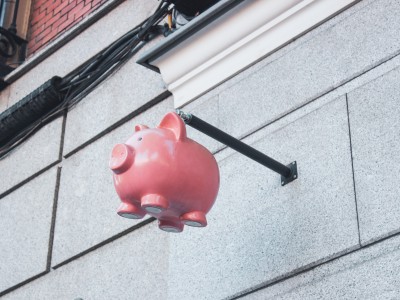Learn » Blog » Did Fonterra just fail New Zealand?
Did Fonterra just fail New Zealand?
Published on 01/09/2025

By Sam Stubbs. This article was originally written & published in The Post.
Recently, Fonterra announced it’s intention to sell it’s brands business - with household names like Anchor, Mainland and Kāpiti - to French owned Lactalis, for $3.85 billion. If approved by regulators, it will be a windfall for Fonterra’s farmer-owners, in an already buoyant dairy market.
And on the outside, Fonterra appears a successful, well governed enterprise, capable of making good strategic decisions - like this sale. But are they really successful, and have they made a good decision?
Years ago one of my investment heroes, the late Brian Gaynor, drew parallels between Fonterra and the Irish Diary co-operative Kerry Group. The comparisons were startling. On the day Fonterra listed, it had an assessed merger value of NZ$7.5 billion. At the same time, Kerry Group was worth $5.6 billion. But Kerry Group then funded its growth carefully, through retained earnings, while Fonterra borrowed to maximise farm gate payouts and expand in risky ways.
The results speak for themselves. In 2024 Kerry Group had a market value of $26 billion, with Fonterra $10 billion. Farmers may think they’ve done well with Fonterra, but their Irish equivalents have done better.
Missed opportunities
This is disappointing, as Fonterra has had a global competitive advantage in milk production, scalable supply chains, great brands, and some impressive executives and directors. But they have been unable to execute on plans for expansion into China, Brazil, Venezuela and Australia.
Fonterra should be able to win globally. That was certainly the intention when it was formed. When agreeing to the merger that created Fonterra, the Clark led government agreed that it would allow them to think long term, build added value businesses, benefit by owning profitable brands when the milk price was low, and multiply the competitive advantage we have in milk production. Stable shareholders, access to required capital, vertical integration, sustainable competitive advantage in raw material supply - it all made sense, and still does.
For Fonterra, this was the plan too. The fundamental reason for owning and developing brands was because they would add more value, and help smooth the fortunes of dairy farmers. When farm gate prices were down, lower the input costs for their brands business would make it more profitable, smoothing income for their farmer owners.
And based on what they pay senior staff, you would have thought they had succeeded. In 2024 14 Fonterra staff were paid more than $1m each, and 104 staff over $400,000 each. And the CEO was paid almost $6 million last year.
Feeding the competition
The irony of this deal is that Fonterra, and our politicians, seem in awe of the size of Lactalis and their family ownership. But they are huge and successful precisely because they have focussed on buying and building brands, and not supplying the commodity that goes into them. The Lactalis corporate website focusses on them enhancing the value of milk, not producing it. And Fonterra is now feeding their growth by staying at the bottom end of the value chain and supplying them the raw material. But shouldn’t they be climbing up the value chain and competing with higher value brand companies like Lactalis?
And there is another irony in Lactalis being a family owned company, and able to make long term strategic decisions. As a co-operative, Fonterra is also a family, yet struggles to behave like a long term enterprise.
And as much as Fonterra can boast about getting ten year supply agreements to Lactalis, the party that is closer to the consumer is ultimately the one with pricing power. So, like it or not, Fonterra has now taken a path of least added value, and is even more a price taker than it was. Over time, expect Lactalis to behave like any rational brand owner and seek to minimise input costs i.e. the price it pays for milk. The supply contracts with Lactalis that Fonterra proudly touts now could, over time, turn to ashes in their mouths.
So why is Fonterra throwing in the towel on adding value? One of the advantages of a co-operative is to be able to play the long game, but with this transaction, they are clearly not. It feels to me like a tactical win, but a strategic loss.
Lacking in long-term vision
The Fonterra brands business clearly has potential, hence the $3.8 billion Lactalis are paying for it. My concern in selling it - which, to be clear, is Fonterra’s right - is that this is yet another example of a formula that has been repeated time and time again by New Zealand businesses. It goes something like this - a foreign buyer comes in and buys assets, locals are mesmerised by the size of the cheque, but time then shows the buyer was the smart one, having actually bought the crown jewels of the company.
The timing of this sale could be bad too, because it comes at a time when many dairy farmers don’t need the money. Farmers can be very clever financially, but windfalls can still be mis-spent when everything else seems good.
And there is a sad irony here - if listed on the NZ stock exchange, Fonterra brands would have access to a large and growing pool of KiwiSaver investment. The $3.8 billion Lactalis paid is less than 1% of the money KiwiSaver managers will have available to invest in New Zealand over the next 25 years. KiwiSaver managers could have easily afforded to buy and build Fonterra as a branded goods company. And farmers would have a market to trade the shares they owned in the brands company, with Fonterra having the muscle to compete globally.
To my mind, this sale demonstrates either an absence of long term vision, or an inability to execute it globally. Some Kiwi companies have expanded very successfully, Xero and RocketLab being stand outs. And in global food and beverage brand building, local heroes like Fix and Fogg and AF drinks are smashing it.
Fonterra’s failure here speaks to a wider problem in New Zealand corporate governance - inability to embrace risk and execute a winning strategy. Our big companies have been starved of capital for decades. That has led to a collective mindset in many Boardrooms that doesn’t know how to think long term, deploy large amounts of capital wisely, and win the international game. And too many big companies are addicted to enticingly cheap debt, happily supplied by our very profitable banks, when the better way to grow is often via earnings and shareholder funds.
This sale highlights our need for a cadre of leaders prepared to think long term, embrace risk, execute a strategy, and tap our growing pool of KiwiSaver savings. As a KiwiSaver manager, I’m looking forward to helping make that happen.


